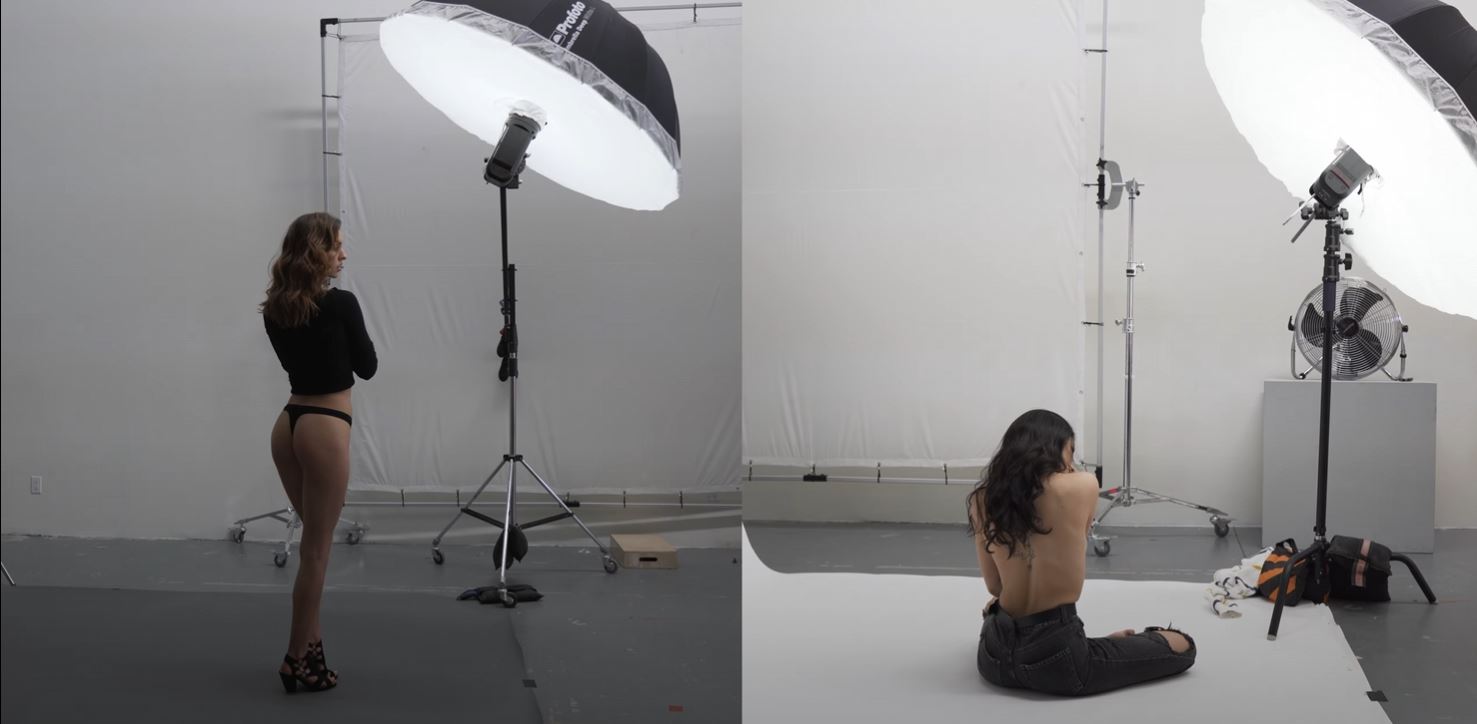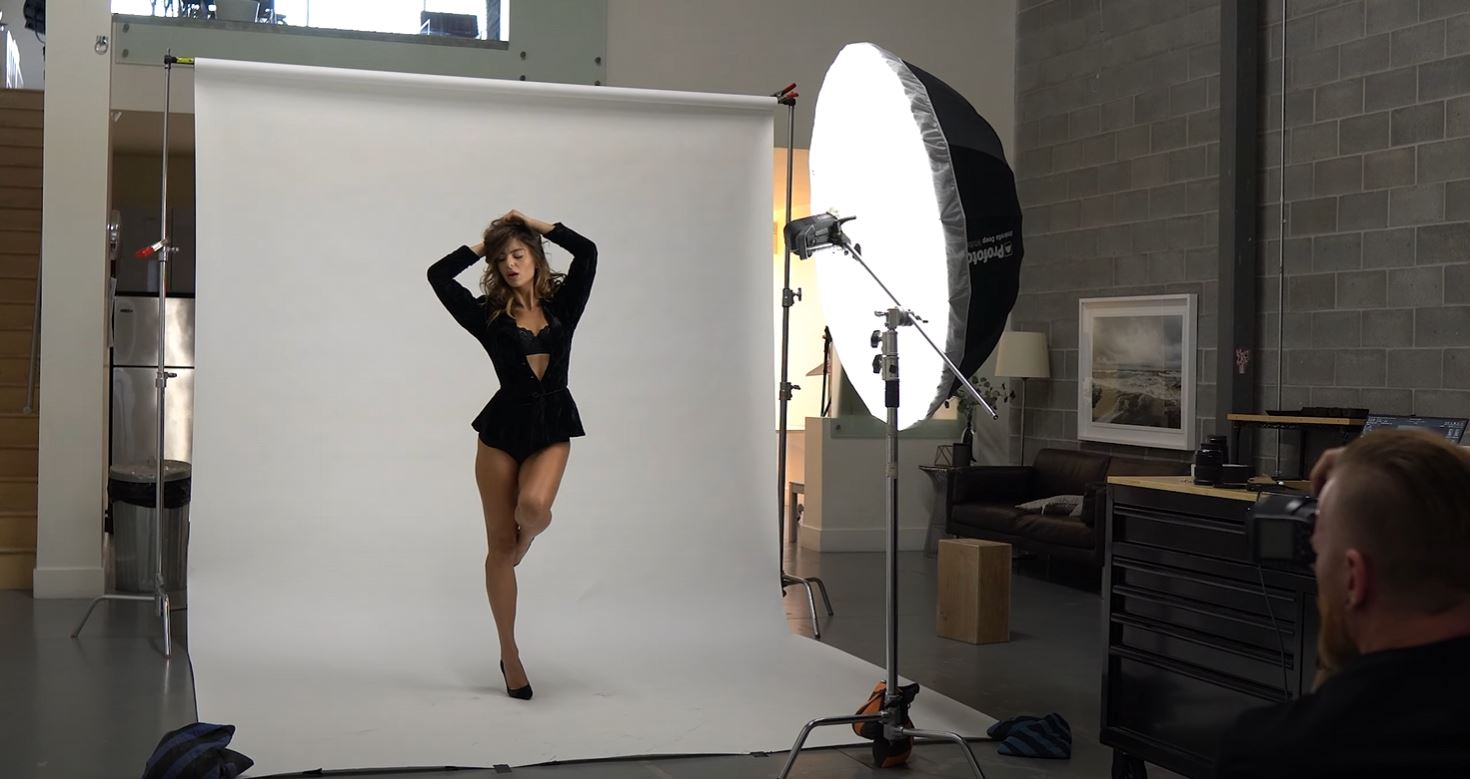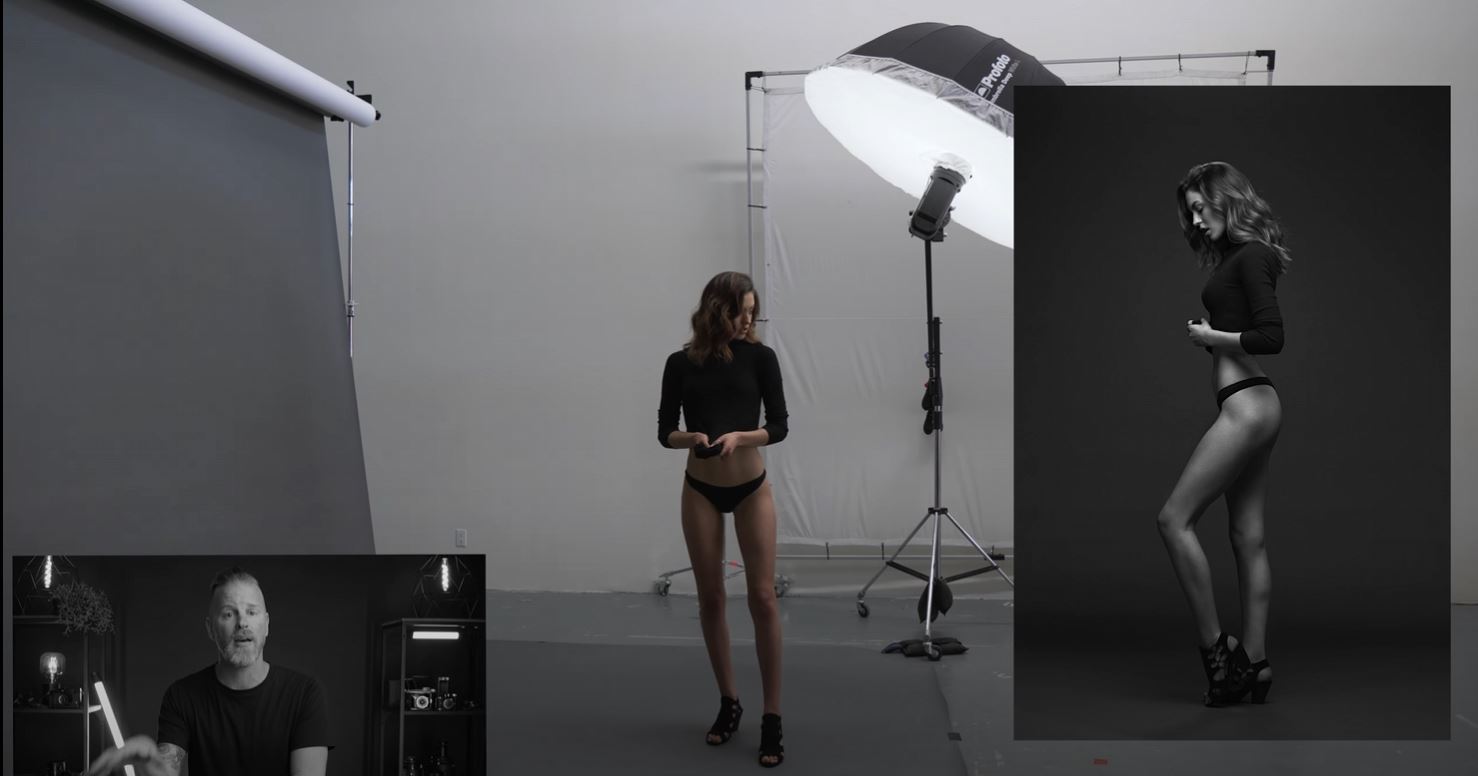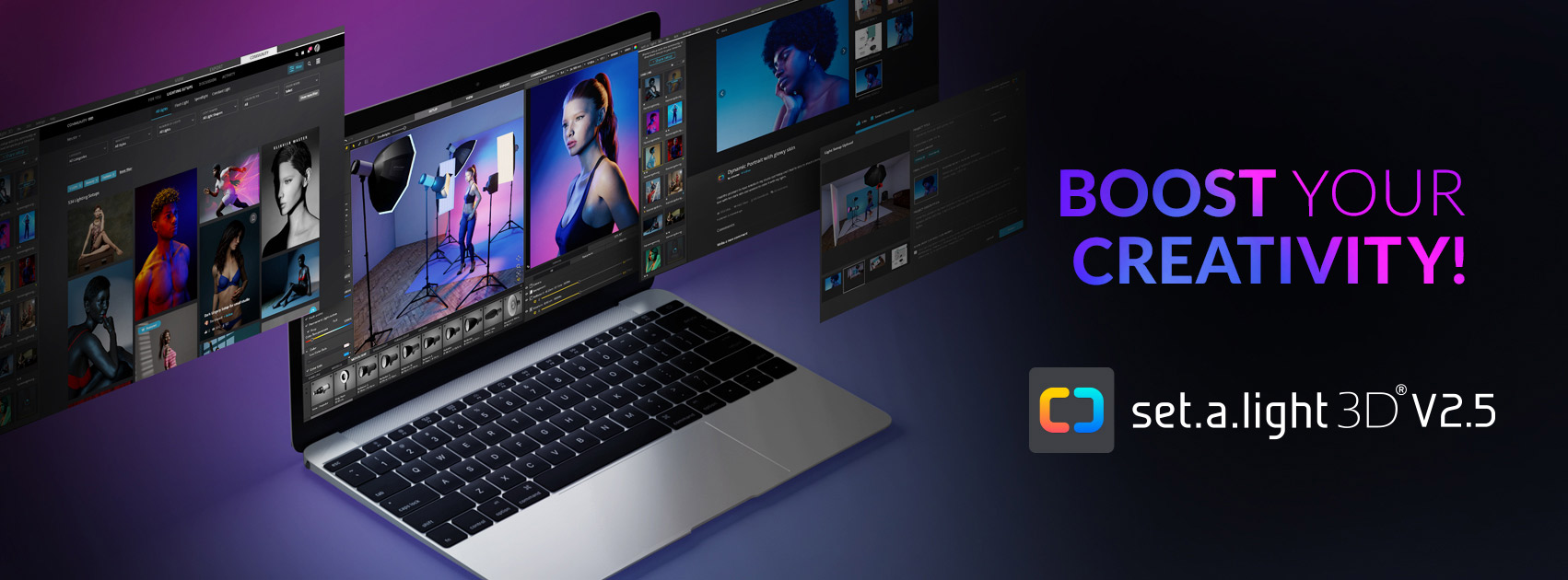Nathan Elson's Favorite ONE LIGHT Studio Setups For Model Photography
Capturing the perfect portrait involves more than just pointing a camera at your subject and pressing the shutter button. Portrait photographers understand the critical role that lighting plays in creating mood, depth, and dimension in their images.
Nathan Elson, a seasoned photographer with a knack for creative lighting setups, has delved into the world of one-light portrait photography and is here to share his insights with you. In this video, he will explore some of his favorite one-light setups that transform ordinary portraits into captivating works of art.
Overhead Lighting: Sculpting Dimension from Above
One of the foundational lighting setups Nathan loves to employ is overhead lighting. This technique involves positioning a light source slightly overhead and directing it straight at the subject from above. The result is a dramatic, sculpted effect that emphasizes the model's features while adding depth to the image. The key to success with this setup lies in the delicate balance of feathering the light to avoid flatness and creating dimension through strategic placement.

By angling the light slightly downward, Nathan achieves flattering highlights and shadows that contour the model's face and body. Feathering the light from above creates a gradual transition from light to shadow, showcasing the model's features while maintaining a three-dimensional feel. This technique brings out the model's cheekbones, jawline, and body shape, providing a polished and striking portrait.
Side Lighting: Embracing Shadows for Mood
In the realm of portrait photography, shadows are not to be feared but embraced. Nathan's side lighting setup adds mood and drama to portraits by positioning the light source to the side of the model. This technique allows a significant portion of the subject to fall into shadow, creating an intriguing interplay of light and dark. With a careful balance of positioning and feathering, Nathan ensures the light travels across the model, revealing shape and form.

Despite the side lighting setup, Nathan highlights the importance of maintaining the downward angle to capture the distinct contours of the model's features. Whether the model is standing or sitting, Nathan adapts the lighting height and positioning accordingly, showcasing the model's presence against various backdrops.

Shaped Lighting: Unleashing Creativity with Gobos
Nathan's ingenuity shines through in his use of shaped lighting, where he employs the optical snoot from Strobe Pro to create captivating images. The optical snoot, a modifier that employs various gobos to cast shapes and patterns, injects creativity and uniqueness into portraits. By projecting light through intricate gobos, Nathan produces images that stand out from the crowd, infusing a touch of artistry into his work.
Nathan's strategic placement of the model within the v-flat's boundaries ensures that the light wraps around the subject's face, accentuating contours and features. He shares a pro tip of giving subjects a focal point within the v-flat, simplifying the process of achieving captivating catchlights and directing their gaze. The results speak for themselves—images that balance dramatic lighting with the subtlety required for cinematic impact.
Nathan Elson's journey through his favorite one-light setups illuminates the intricate dance between light and shadow in the world of portrait photography.
Image and video via Nathan Elson
Overhead Lighting: Sculpting Dimension from Above
One of the foundational lighting setups Nathan loves to employ is overhead lighting. This technique involves positioning a light source slightly overhead and directing it straight at the subject from above. The result is a dramatic, sculpted effect that emphasizes the model's features while adding depth to the image. The key to success with this setup lies in the delicate balance of feathering the light to avoid flatness and creating dimension through strategic placement.

By angling the light slightly downward, Nathan achieves flattering highlights and shadows that contour the model's face and body. Feathering the light from above creates a gradual transition from light to shadow, showcasing the model's features while maintaining a three-dimensional feel. This technique brings out the model's cheekbones, jawline, and body shape, providing a polished and striking portrait.
Side Lighting: Embracing Shadows for Mood
In the realm of portrait photography, shadows are not to be feared but embraced. Nathan's side lighting setup adds mood and drama to portraits by positioning the light source to the side of the model. This technique allows a significant portion of the subject to fall into shadow, creating an intriguing interplay of light and dark. With a careful balance of positioning and feathering, Nathan ensures the light travels across the model, revealing shape and form.

Despite the side lighting setup, Nathan highlights the importance of maintaining the downward angle to capture the distinct contours of the model's features. Whether the model is standing or sitting, Nathan adapts the lighting height and positioning accordingly, showcasing the model's presence against various backdrops.

The resulting images exude character and depth, a testament to the power of skillful lighting techniques.
Nathan's ingenuity shines through in his use of shaped lighting, where he employs the optical snoot from Strobe Pro to create captivating images. The optical snoot, a modifier that employs various gobos to cast shapes and patterns, injects creativity and uniqueness into portraits. By projecting light through intricate gobos, Nathan produces images that stand out from the crowd, infusing a touch of artistry into his work.
With careful positioning and adjustments, he crafts portraits that feature stunning shapes and silhouettes. He masterfully controls the interplay of light and shadow, resulting in images that evoke emotion and intrigue. Whether he uses a spotlight effect to draw attention or molds shadows to frame the subject, the shaped lighting setup allows Nathan to weave his artistic vision into every shot.
Indirect Lighting: The Cinematic Touch
Among his favorite setups, he embraces the power of indirect lighting to achieve cinematic portraits. Using only one light source and two v-flats, he creates an exquisite play of light and shadow that elevates the images to a new level of sophistication. The interplay between the main light and the bounce light from the v-flat infuses the portraits with dimension, detail, and an unmistakable cinematic allure.
Indirect Lighting: The Cinematic Touch
Among his favorite setups, he embraces the power of indirect lighting to achieve cinematic portraits. Using only one light source and two v-flats, he creates an exquisite play of light and shadow that elevates the images to a new level of sophistication. The interplay between the main light and the bounce light from the v-flat infuses the portraits with dimension, detail, and an unmistakable cinematic allure.
Nathan's strategic placement of the model within the v-flat's boundaries ensures that the light wraps around the subject's face, accentuating contours and features. He shares a pro tip of giving subjects a focal point within the v-flat, simplifying the process of achieving captivating catchlights and directing their gaze. The results speak for themselves—images that balance dramatic lighting with the subtlety required for cinematic impact.
Nathan Elson's journey through his favorite one-light setups illuminates the intricate dance between light and shadow in the world of portrait photography.
You may also like: Using ONE LIGHT for Amazing Results
Image and video via Nathan Elson






 I'm a commercial photographer based out of Calgary, AB. My YouTube channel will be a place for my behind the scenes, Q&A, and whatever else happens to make it into video form that seems like people might be interested in viewing. Let's Get Connected:
I'm a commercial photographer based out of Calgary, AB. My YouTube channel will be a place for my behind the scenes, Q&A, and whatever else happens to make it into video form that seems like people might be interested in viewing. Let's Get Connected: 













0 comments:
Post a Comment